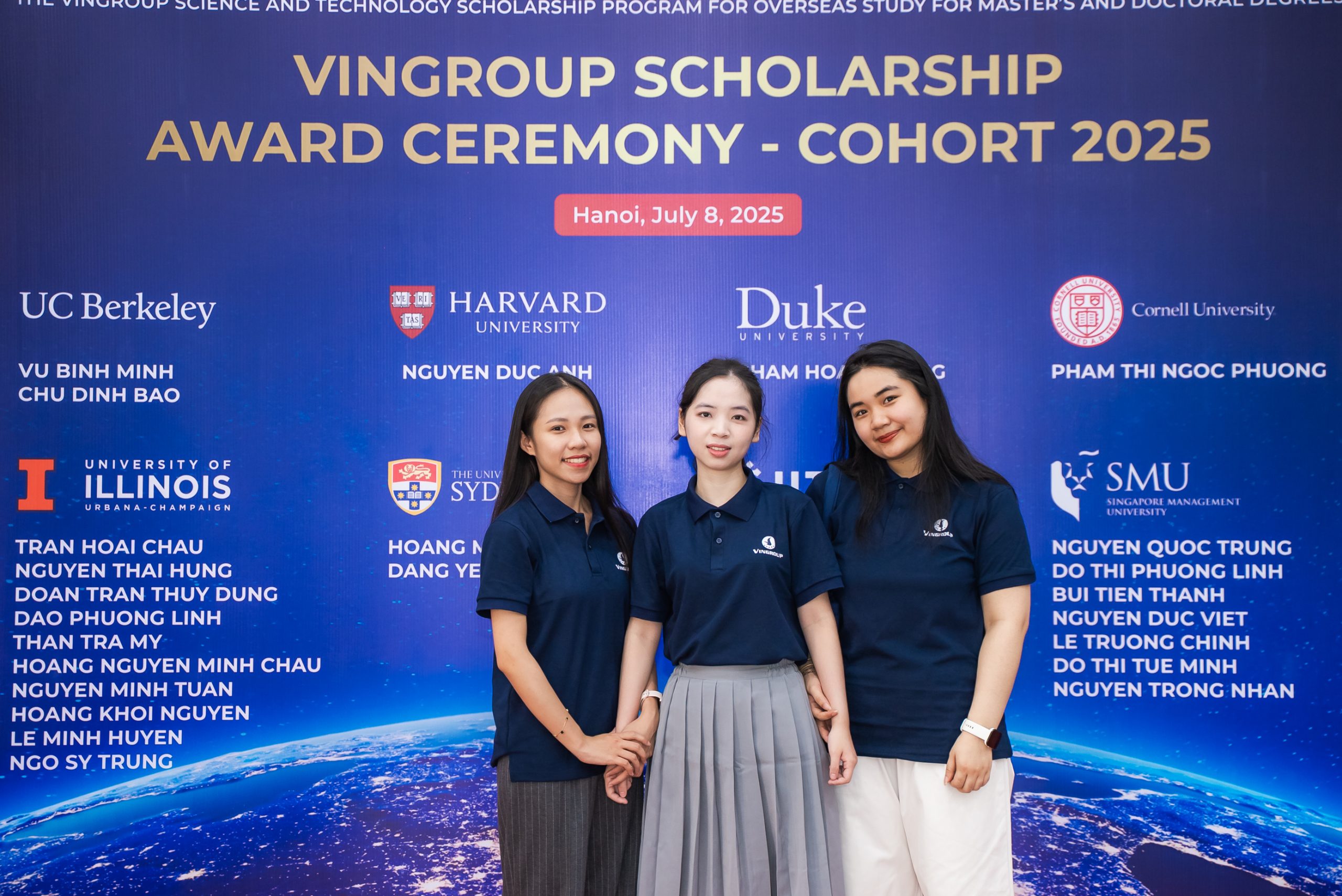
Dung Doan is a Research Assistant at the VinUni-Illinois Smart Health Center (VISHC), contributing to interdisciplinary medical diagnostics and biotechnology projects. Behind her calm demeanor lies a story of chance encounters, quiet perseverance, and an unexpected shift from the industrial track to academic research.
Dung joined VISHC in mid-October last year. At the time, she had only vaguely heard of the center through a brief introduction during a Vingroup Scholarship information session.
That decision turned out to be pivotal. Dung was awarded a Vingroup Scholarship worth up to $20,000/year, making her one of the standout students supported to pursue advanced research.
Most recently, she reached another significant milestone: receiving a VISHC Fellowship to pursue her PhD at the University of Illinois Urbana-Champaign (UIUC), one of the world’s leading universities in engineering and science, with a total value of $50,000.

Dung Doan (center) and her VISHC teammates, united in a late-night push that reflects their shared passion for discovery.
Currently, Dung is working on a project involving point-of-care health diagnostics under the supervision of professors from UIC and VinUni. With a background in Biotechnology, she is particularly interested in biosensors and molecular diagnostics, which are areas with strong applications in modern medicine.

Dung describes VISHC as a vibrant and forward-thinking space for young researchers. The collaborative environment — where multiple research groups share the same workspace — fosters knowledge exchange and supports interdisciplinary thinking.
Her time at the center also reshaped her career goals. Initially planning for a future in industry, Dung became increasingly drawn to academia. Seeing how research at VISHC connects directly with hospitals and tech partners helped her envision a meaningful path in scientific inquiry and innovation.
Dung has faced challenges – particularly with access to laboratory equipment. Some tools she needed for experiments weren’t available initially. However, she emphasizes the faculty’s help: “Some of the equipment has now been added, and for others, I hope we’ll get them once the center secures more funding.”

One of her most memorable moments came during a tight deadline for a research submission. With one key teammate unavailable, the rest of the lab team rallied and worked together overnight until 5 AM to complete the work. “We thought we wouldn’t make it because our main researcher was swamped,” she recalls. “But then everyone in the lab came together and worked through the night until 5 a.m. No one complained, and that kind of solidarity really touched me.”
Dung sees great potential in Vietnam’s biotechnology landscape, especially if more attention is paid to research and development. “Many biotech companies still focus mainly on selling products, not on creating new technologies,” she says. “But with our young population and strong adaptability, I believe Vietnam has great potential.”
To students considering research, she offers this advice: “Don’t just study what’s in class. Take initiative to explore the bigger picture of your field — and seek out research groups, even beyond your university. Sometimes, you’ll find your true path in the most unexpected places.”